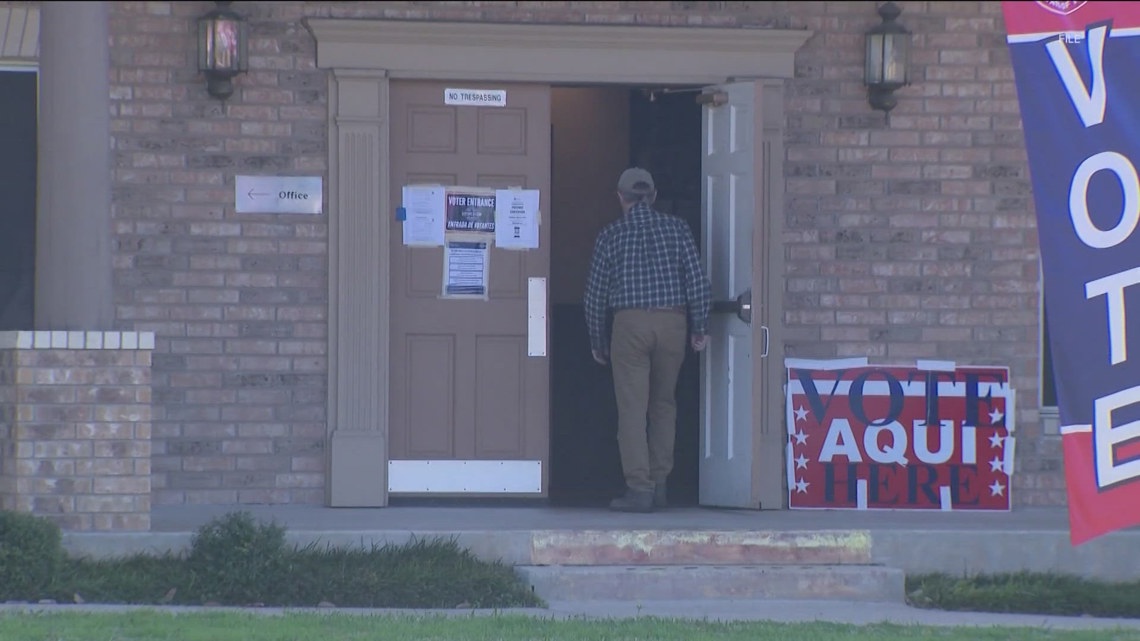
Currently, any Texas voter can cast a ballot in GOP primaries. The party wants to limit eligibility to registered members.
TEXAS, USA — (The Texas Tribune) The Republican Party of Texas filed a lawsuit against Texas Secretary of State Jane Nelson on Thursday in a bid to restrict participation in the GOP’s primary elections to only voters registered with the party.
The lawsuit, filed in federal district court, claims Texas’ open primaries violate the Republican Party’s First Amendment associational rights to choose party leaders. The GOP said in its suit that it would prefer the Legislature to pass a law allowing only registered party members to vote in primary elections, but that it could not wait for lawmakers to act.
“[G]iven the steps necessary to transition to a fully closed primary in an orderly fashion, the Party cannot continue to wait and risk further political inaction and delay that could lead to open primaries (or even a bridge election) in 2028 as well,” the lawsuit read.
The Secretary of State’s office did not immediately respond to a request for comment.
The Texas GOP and Chip Hunt, a Potter County GOP precinct chair, are listed as plaintiffs.
Using a suit against a secretary of state to restrict access in the primaries is not an unprecedented maneuver. A federal district judge ruled in favor of the Idaho Republican Party in a suit against their state’s secretary in 2011, closing the state’s primaries as requested. Ten states have closed primaries, according to the National Conference of State Legislatures.
Because Texas has open primaries, people who traditionally affiliate with the Democratic or Republican parties can vote in the other party’s primary election, commonly referred to as “crossover voting.” The suit alleges that crossover voting leads to the selection of more moderate candidates and gives non-party members unfair influence.
“In Texas, Republicans, and only Republicans, should select Republican nominees,” Republican Party of Texas Chair Abraham George said in a brief statement posted on social media.
The suit pointed to the 2024 primary races of two House representatives — former House speaker Rep. Dade Phelan, R-Beaumont, and Rep. Gary VanDeaver, R-New Boston — as examples of the prevalence of crossover voting. Both lawmakers won their primary races by less than 800 votes, and the suit suggested the pair prevailed over their opponents because of votes from Democratic and independent-leaning voters.
The suit also says the state GOP will be able to create its own registration and verification process for a closed primary if the court rules in its favor.
The Texas GOP adopted new rules in 2024 calling for closed primaries and bolstered them again in June.
Disclosure: Texas Secretary of State has been a financial supporter of The Texas Tribune, a nonprofit, nonpartisan news organization that is funded in part by donations from members, foundations and corporate sponsors. Financial supporters play no role in the Tribune’s journalism. Find a complete list of them here.
This article originally appeared in The Texas Tribune. The Texas Tribune is a member-supported, nonpartisan newsroom informing and engaging Texans on state politics and policy. Learn more at texastribune.org.
